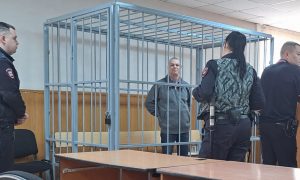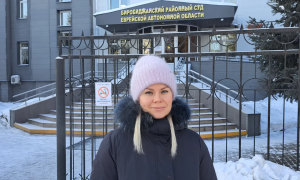America must never become numb to human rights violations, especially the suffering caused by infringing on religious liberty.
Citizens can start by protecting America’s first freedom at home and championing it abroad.
This week, Russia’s supreme court labeled Jehovah’s Witnesses an “extremist group,†banning their operations in the country, ordering the government to seize the denomination’s property, and shutting down the group’s Russian headquarters along with its nearly 400 local chapters.
Mormons came to Utah fleeing religious persecution. Whether or not one is a Latter-day Saint, this history should inspire a special empathy in this state for the oppressed. By some estimates, nearly 70 percent of the world’s population lives under regimes with “high restrictions†on religion.
 Â
Â
“We have to remind people that these (religious freedom) violations are not just statistics. They’re not just short news stories. These are human beings and families,†said the Rev. Thomas Reese, chairman of the U.S. Commission on International Religious Liberty. “We’re looking for ways to make this more visible.â€
This week, the bipartisan commission on religious liberty released its annual report and, for the first time since the report began, the commission placed Russia on the list of “countries of particular concern,†which also includes Syria, China and Iran, among others. The report further warned Western European countries of an increasing trend toward anti-Semitism and Islamophobia.
To combat complacency and apathy when approaching the topic of religious freedom abroad, citizens can be vigilant in securing religious liberty at home by practicing their faith traditions. As the number of religious “nones†swells, support for pro-social religion is critical in America.
The report by the U.S. Commission on International Religious Liberty emphasizes the human impact of religious oppression.
There are devastating micro and macro costs to restricting religious liberty.
According to researchers Brian Grim and Roger Finke, greater religious freedom in a country correlates with reduced religion-related conflicts; it diminishes human suffering and improves economic stability, allowing for greater economic activity.
Meanwhile, religious liberty also correlates with increased levels of trust and reduced levels of corruption. Grim and Finke highlight how religious freedom is part of a bundle of human rights that work to foster other pro-social outcomes, including better health care, improved livability, increased gender empowerment, higher wages for women and greater GDP.
As the Rev. Reese reminds Americans and the world, these are not “just statistics.†These are human beings. The costs to these individuals and families is real.
Studies suggest that greater religious freedom at home and abroad can increase safety and socioeconomic stability. Religious liberty is the foundation of civil society and an important catalyst for increased human flourishing.
For the sake of its own people, Russia would do well to reverse course. For its part, the United States must remain vigilant to continually shore up its first freedom at home while promoting it abroad.
http://www.deseretnews.com/article/865678889/In-our-opinion-There-are-devastating-costs-to-restricting-religious-liberty.htmlÂ




